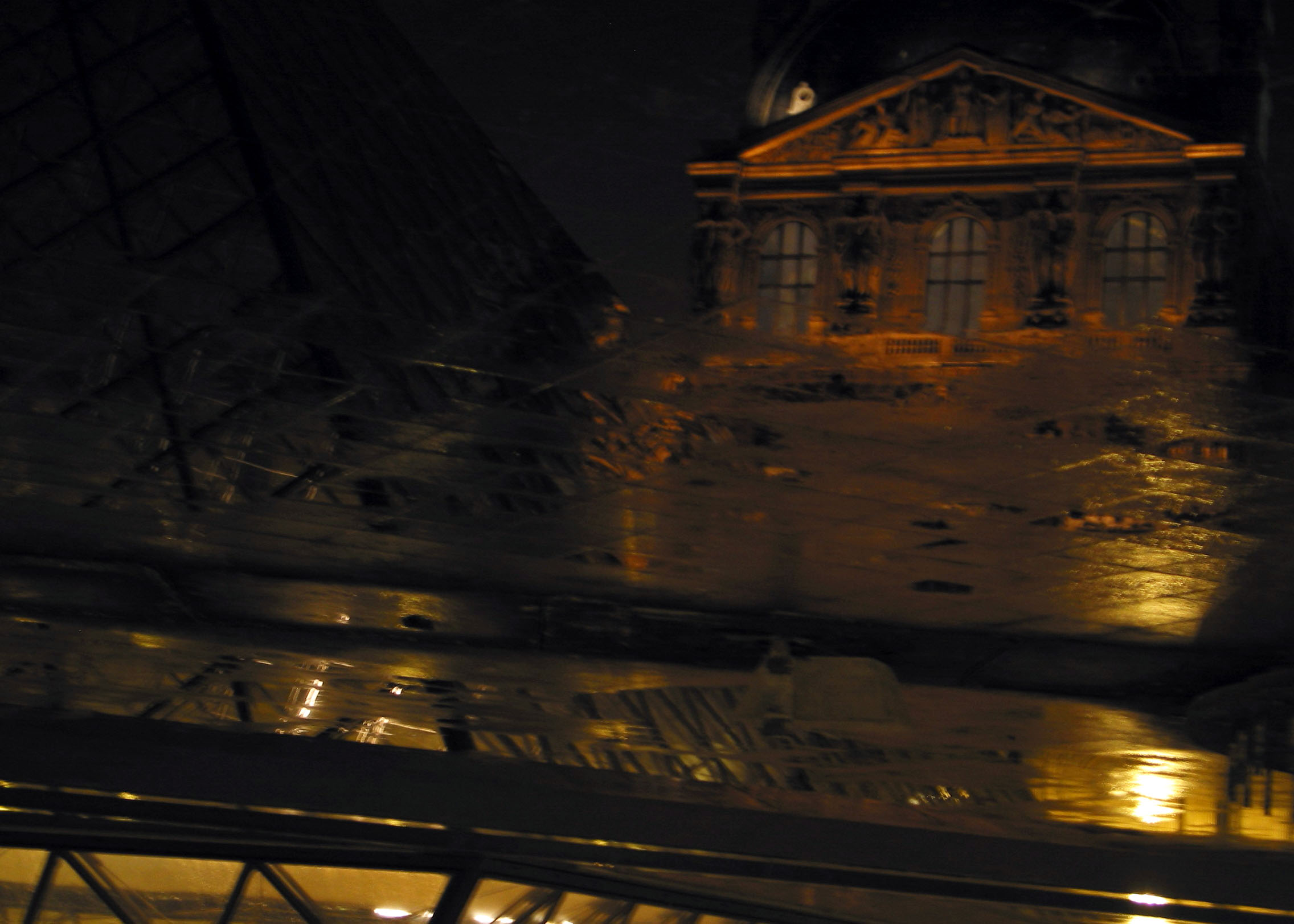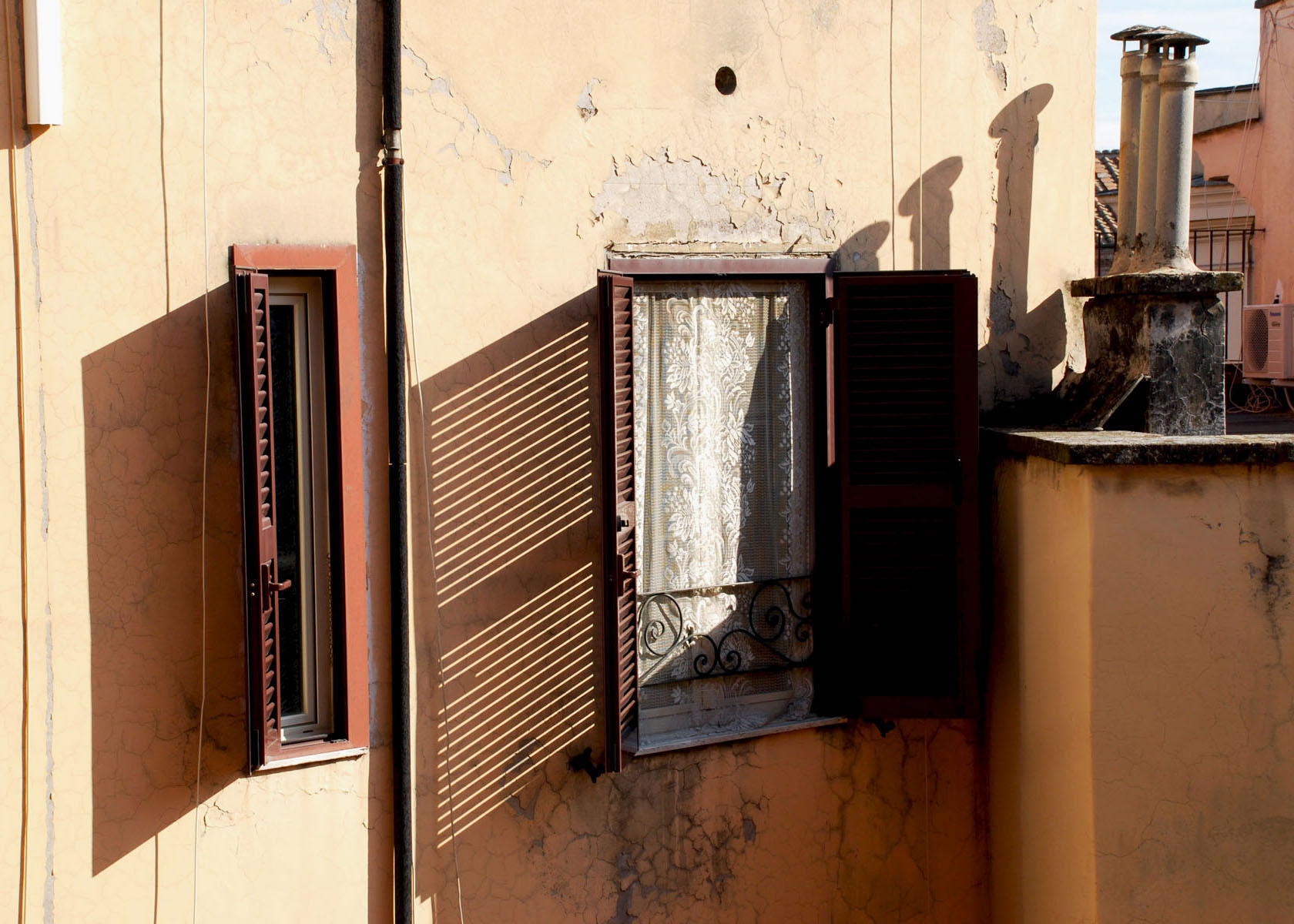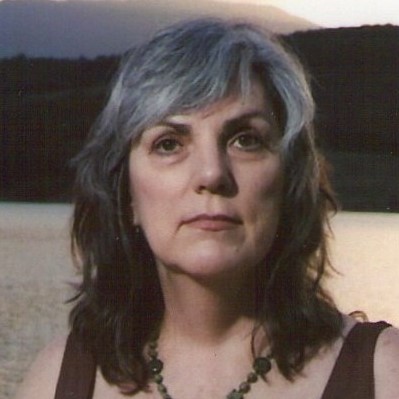Memoir by Diane G. Martin
New Year’s Eve 1984, Hotel X, Paris

He’s aged very little, despite the ongoing Libyan Troubles. Sleepless nights are, of course, modeled into my husband’s face as if it were clay, hollowing taut cheeks, elongating crevices under alert, ironic, bottomless brown eyes. The pigment seems darker, still rich, deep, and shining, though perhaps less absorbing of light.
I used to marvel at the pure amber transparency of those eyes, only a few years before in San Francisco. Since then, sadness, insomnia, worry have marked his face with subtle changes in texture, color, firmness. I now see him so infrequently that with each visit I’m startled, imagining he’s become yet thinner, on the verge of vanishing. He says no, he’s the same. Indeed, to the unloving eye, I suppose he appears virtually unaltered.
I restrain myself from asking specific questions about the chaotic terror in Libya, though I still feel, oddly, that it’s my right to know. Patience can be learned. Endurance, too. My rights are less pertinent these days, and I’m learning restraint too late. I predict, ironically, that restraint may become a celebrated feature of my character.
He won’t volunteer the gruesome details of his arrest and imprisonment, as if to save me from petrified, embedded knowledge. I’d been pregnant with our first and only daughter when he obeyed his mother’s summons three years before to return to Tripoli to support their family—and to campaign for his journalist uncle’s release from prison and certain execution—and he flew right into a trap. Nabbed at the airport. Held incommunicado, at least from me, until just prior to our child’s birth.
As if sleepless imagination weren’t worse or as bad. I’m worn out with confrontation and have begun to find that sort of voyeurism tiresome. I remark that I observe an improvement in his state of mind over these past six months, since we’ve finally been able to speak briefly, after I unearthed the bare bones of his confinement—since he’d been released without his passport to begin fulfilling the terms of discharge: stable, approved work; lodging; the simulation of permanent roots in his native land.
No more frivolous gadding about foreign countries. No more unseemly liaisons with loose, Western women. Even this reunion, so hard-won—so expensive and fraught with pitfalls, danger, grief, and fatigue—is temporary. His father is being held as a potential hostage against my husband’s decampment. Still, perhaps he is less resigned to mere blank survival now. Hasn’t he told me with arch cheerfulness that he’s taken up drawing again? Not that I believe it.
During our last, more or less real conversation, he replied with scorn and self-mocking that he’d become content merely to look at art. When the opportunity presented itself. My forced optimism here provokes a slight register of surprise, an almost imperceptible lift of the eyebrows. He’s thinking, You will never understand me. How many times over the years did he accuse me with that sentence? He doesn’t say it now. He’s learning also, now that it’s too late.
Instead, he replies with a disarming veneer—“Oh, really? '83 was not a good year”—then trailing off provocatively, “Not at all.”
I reel, as if he had spelled it out. Seven deadly letters scrawled in crimson, like sins. I don’t question him. He has opened and closed that volume with a definitive gesture. Besides, I fear the answer, ashamed lest the impulse to ask appears sensational.
The clock stops ticking, as I stare vacantly at the peeling wallpaper, outlining water stains that jerk manically into intermittent focus like shadow puppets. The scene shifts, blurs, becomes a snow-capped mountain. A perfect Kilimanjaro or Matterhorn, staring back at me—one dark, one snowy, albino eye—shaking its shaving of dangling ringlet. I am poised to say it. He waits. I gulp down my now warm demitasse of champagne, absorbing the label on the bottle absently, concerning myself with points of pronunciation. Chemin des Vignes one way, Chemin des Vignes another.
I shrug, “Ne pas utiliser la douche,” I read the wall notice, an accusation against this crummy hotel.
“What?”
“Nothing. Just practicing my French.”
I tip the heavy bottle toward his glass, but it is empty. He smiles slightly, scarcely concealing his exhaustion.
“Yes, we've finished the champagne before midnight,” he says. “I’ll go get the Vouvray. It’s cold, in my window.”
He needs to smoke. Don’t be long; we only have five minutes, I think, but remain silent. He slips on his slippers, avoiding contact with the moist griminess of the stained brown carpet. “Be right back,” he says softly, before pulling shut the noisy bolt.
I catch Kilimanjaro’s albino eye and ask flatly, “How did they torture you? When? For how long?” Scalding tears blur its shape, melting the snow-capped peak. Forgetting, I tilt the empty glass to my lips, gulp air, and put it back inside the ring on the table.
My back aches from sitting propped up by a leaden pillow against the wall. Sighing deliberately, I heave myself off the hard, narrow bed, maneuvering my way past the little cot to the door. She’s still asleep, mouth trustingly ajar, fists clenched. The door latch is so loud when I pull it that I wonder she doesn’t wake. In the hall bathroom, the door, the chain-flush, the lock all seem exaggeratedly noisy, an assault against the night. Returning to the room, I reposition myself.
He enters a moment later with the uncorked bottle, sits carefully on the rickety chair, and pours out equal measures of the clear yellow, cold wine. Glancing at the folding travel alarm, he remarks, “Oh, well, not too late.”
As we clink glasses, cannons begin firing, right on cue. Relieved by the opportunity to avoid my swollen eyes, he steps dancer-like across the cot to the window, pulling back the heavy curtain, careful lest it come crashing down, as happened once before. Improvised stage dressing, not even wide enough to block the light. We both know he can see nothing but the dark courtyard. Still, he poses there, ceremoniously awaiting the last boom of the cannon.
“We were lucky. The clock’s a little fast, as usual.” My rueful, brittle voice crackles.
“Or the cannons are slow,” he quips wearily, raising his glass. “Happy New Year. Here’s to Paris.”
“Happy New Year. I want to....”
“She’s awake,” he says. The toddler’s disheveled head is raised. Wide-eyed and watchful, she fixes enormous brown eyes first on me, then on him.
“Go back to sleep, honey,” I say.
“I can’t sleep. What are you doing, Daddy?”
He corks the bottle, rising.
“One moment, just wait a moment. She’ll go back to sleep,” I say.
I’m on my feet in the miniscule, squalid room. Draining his glass, he returns it to the chipped bedside table.
“Happy New Year,” he repeats, lightly kissing my cheek, and then in a whisper, “Don't let her see you crying.”
Suddenly, shrilly, I laugh, “Do you think she’s never seen me cry?”
“Good night. Happy New Year,” he repeats softly, retreating through the door. The bolt snaps home, echoing.

Art Information
- “Louvre Reflection, Paris, France” and “Window, Rome, Italy” © Diane G. Martin; used by permission.
 Diane G. Martin, Russian-literature specialist, Willamette University graduate, winner of the Diana Woods Memorial Award for Creative Nonfiction, runner-up for Princemere Poetry Prize, has been anthologized and had poetry, prose, and photography published in numerous literary journals, including New London Writers, Vine Leaves Literary Review, Poetry Circle, and Open: Journal of Arts and Letters.
Diane G. Martin, Russian-literature specialist, Willamette University graduate, winner of the Diana Woods Memorial Award for Creative Nonfiction, runner-up for Princemere Poetry Prize, has been anthologized and had poetry, prose, and photography published in numerous literary journals, including New London Writers, Vine Leaves Literary Review, Poetry Circle, and Open: Journal of Arts and Letters.
Diane has traveled throughout much of the world, often reluctantly. The themes of exile, disability, and displacement pervade her work. She has completed several books of poetry, as well as a collection of creative nonfiction pieces. She is at work on a multi-genre memoir.
Author photo credit: Ricardo Mendez Pastrama.
